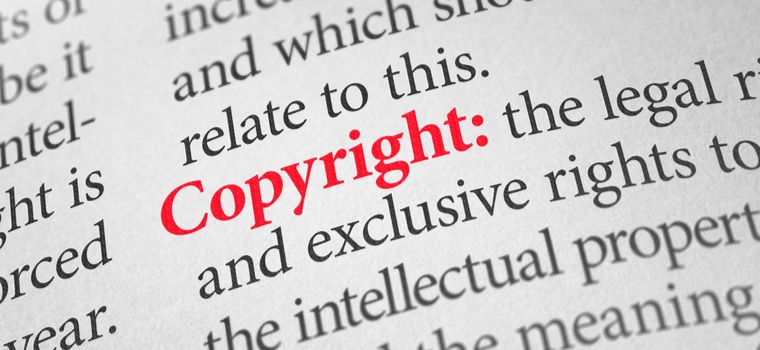In our previous blog post about copyright demand letters, we discussed some ways to respond to the letters. Since then, I have complied some questions that this firm has received about these letters. Should you have any questions about a copyright demand letter that you received, please contact Verna Law at 914-908-6757 or at anthony@vernalaw.com.
Navigating the Waters of Copyright Demand: A Guide to Responding to a Copyright Demand Letter
In the digital age, where content is king, the inadvertent misuse of copyrighted material can land individuals and businesses in hot water, manifesting often in the form of a copyright demand letter. Higbee & Associates, a law firm known for its active role in copyright enforcement, frequently sends out these demand letters on behalf of copyright owners. Some other owners of copyrights and works that are governed by copyright law are PicRights, Oppenheimer, KodakOne, Pixsy, and Photoclaim. These letters are not only legitimate but also a signal that it’s time to take immediate action. Through this blog post, we aim to demystify the process of responding to such letters, addressing common concerns and highlighting the importance of legal guidance in these situations.
Are These Demand Letters Scams?
A common initial reaction to receiving a demand letter is skepticism, with many wondering if it’s a scam. It’s important to understand that the demand letters issued by Higbee & Associates and the other associated copyright and works owners are legitimate legal documents. These letters are sent out to enforce copyright laws and protect the intellectual property of copyright owners. Ignoring these letters can lead to more severe legal consequences, underscoring the importance of taking them seriously.
Does that mean the demand letters make assertions that are completely correct? No. For example, many – if not most – of these demand letters do not include information such as a copyright registration number from the Library of Congress. This lack of a registration limits the damages should the work owner need to file a lawsuit.
Another issue may be that the website the potentially infringing use is on does not receive a lot of views
Is Unauthorized Use of a Photo Really Wrong?
Another frequent question revolves around the legality of the actions leading to the receipt of a demand letter. Simply put, using a photograph or any copyrighted material without proper authorization constitutes copyright infringement. Copyright laws are designed to protect creators and their works, ensuring they have exclusive rights to use, distribute, and license their creations. Unauthorized use violates these rights, making it legally wrong and subject to legal action.
Can I Be Sued for Copyright Infringement?
Yes, recipients of a copyright demand letter can indeed be sued. Higbee & Associates and the listed work owners typically offer a settlement option in their demand letters to resolve the infringement without going to court. However, if the letter is ignored or a settlement cannot be reached, the copyright owner has the right to file a lawsuit in District Court or pursue a claim through the Copyright Claims Board, a newer alternative court that offers a less costly and less formal option for resolving copyright disputes. Understanding the potential legal avenues and consequences is crucial in deciding how to proceed.
Should I Hire a Lawyer?
Hiring a lawyer is not only advisable, even though you are always allowed to represent yourself, but can be a strategic decision in responding to a copyright demand letter. A firm such as Verna Law, P.C., that focuses on copyright law can provide several advantages:
- Expertise: Lawyers bring a deep understanding of copyright law, including the nuances of infringement cases and settlement negotiations.
- Negotiation: An experienced lawyer can negotiate more effectively, often securing a lower settlement than what is initially demanded.
- Legal Protection: Representation by a lawyer ensures that your rights are protected throughout the process, and any agreement reached is in your best interest.
- Peace of Mind: Perhaps most importantly, having a lawyer handle the matter provides peace of mind, allowing you to focus on your business or personal life without the added stress of legal troubles.
Next Steps: Responding to the Letter
Upon receiving a copyright demand letter from Higbee & Associates or from a work owner, consider the following steps:
- Don’t Ignore the Letter: Ignoring it won’t make the problem go away and can lead to escalated legal action.
- Assess the Claim: Review the specifics of the infringement claim. Understand what content is involved and how it was allegedly used without authorization.
- Gather Evidence: Compile any relevant information and documents related to the use of the copyrighted material. This might include licenses, purchase receipts, or any correspondence related to the material’s use.
- Consult with a Lawyer: Before responding to the letter, consult with a copyright lawyer to discuss your options and determine the best course of action.
Conclusion: Moving Forward with Confidence
Receiving a copyright demand letter from Higbee & Associates or any work owner can be an intimidating experience. However, understanding that these letters are a legitimate part of copyright enforcement and recognizing the importance of responding appropriately can mitigate the stress involved. Hiring a knowledgeable copyright lawyer not only aids in navigating the legal complexities but also in potentially achieving a more favorable outcome.
Remember, copyright infringement is a serious matter, but with the right approach and professional guidance, it’s a situation that can be managed effectively. If you find yourself the recipient of a demand letter, take a deep breath, and then take action. The path to resolution is clearer than you might think.
If you have any questions, please call Verna Law, P.C. at 914-908-6757 or send an e-mail to anthony@vernalaw.com.

